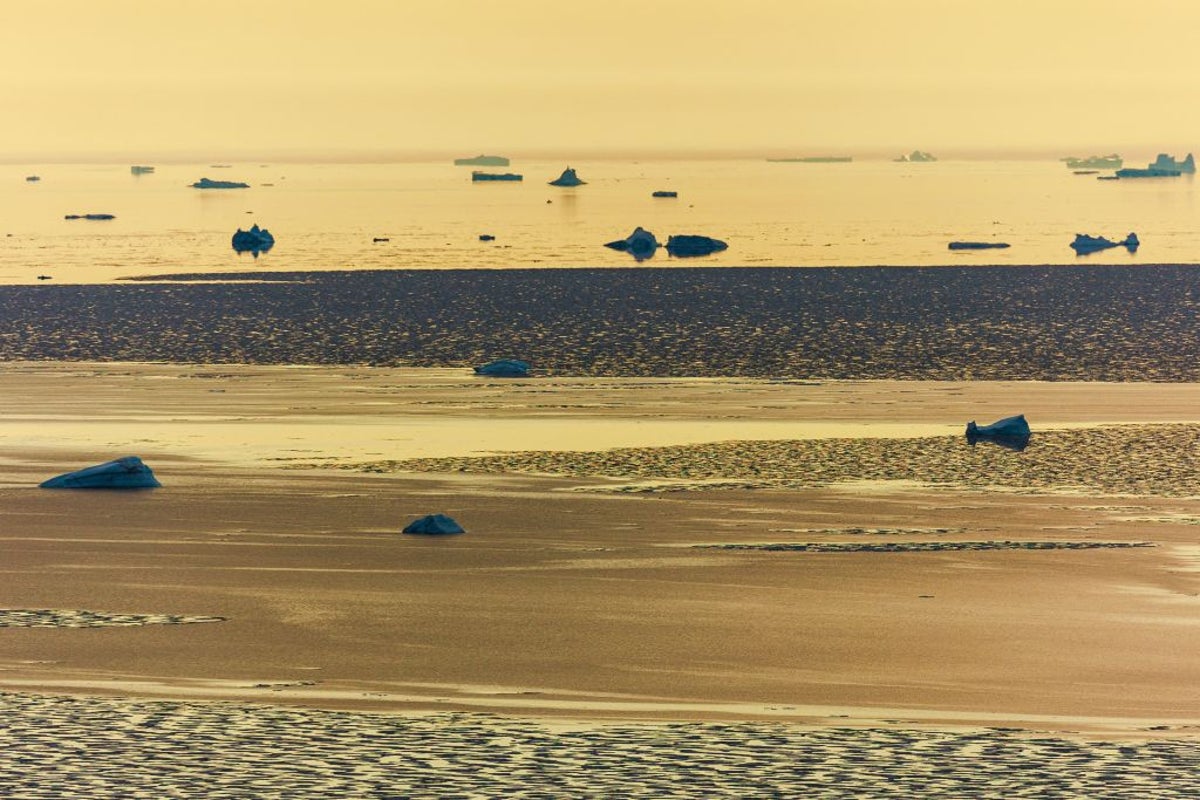
Ice-free Arctic summers are now unavoidable, scientists have said.
Even if rapid, dramatic cuts are made to planet-heating emissions, the polar region will still be without sea ice in September in the next few decades, according to research published in the journal Nature Communications. The first sea ice-free September could occur as early as the 2030s, the study found.
Arctic sea ice has been declining for decades but has shrunk at an even faster rate in the past 20 years.
The latest assessment from the UN climate science body, the Intergovernmental Panel on Climate Change (IPCC), found that the Arctic would be practically ice-free in September, sometime around mid-century, with failure to cut emissions.
However, the study, published on Tuesday, found that ice loss was happening even faster.
“We basically are saying that it has become too late to save the Arctic summer sea ice,” Professor Dirk Notz, of the University of Hamburg, Germany, who was part of the research team, told Bloomberg.
Using satellite observations of Arctic sea ice over the last 40 years and the best climate models, an international team from scientific institutions in South Korea, Canada and Germany, were also able to attribute ice loss primarily to greenhouse gas emissions.
The team found that failure to cut global emissions, or lacklustre efforts, could see the Arctic experience its first summer without ice as soon as the 2030s.
If runaway levels of emissions continue, “extended occurrences” of an ice-free Arctic in early summer are projected later this century.
“As scientists, we’ve been warning about the loss of Arctic summer sea ice for decades,” Prof Notz also told The Guardian.
“This is now the first major component of the Earth system that we are going to lose because of global warming. People didn’t listen to our warnings.”
The absence of polar sea ice in summer will have profound impacts on the environment including speeding up overall warming of the Arctic.
Other studies have shown that a rapidly heating Arctic has consequences for weather further south, by altering the jet stream and driving more extreme weather events.
“Dreadful news,” tweeted Professor Bill McGuire, Professor Emeritus of Geophysical and Climate Hazards at University College London, after the study was published.
“Expect the shipping, oil and gas and minerals corporations to descend like vultures.”
Source link
